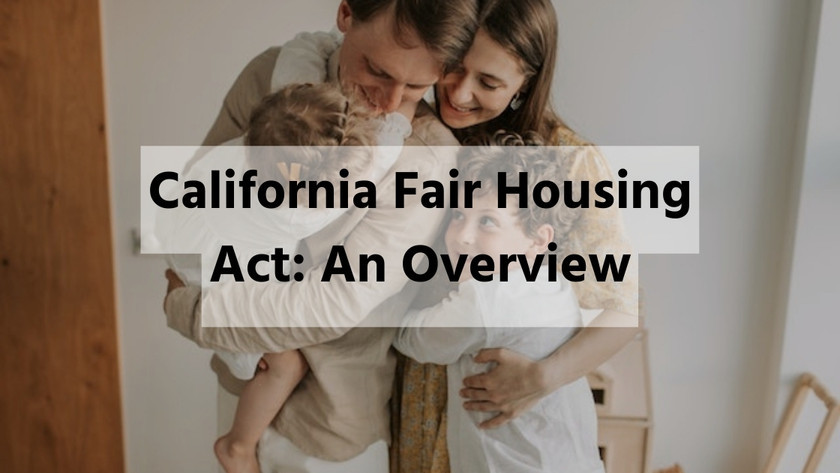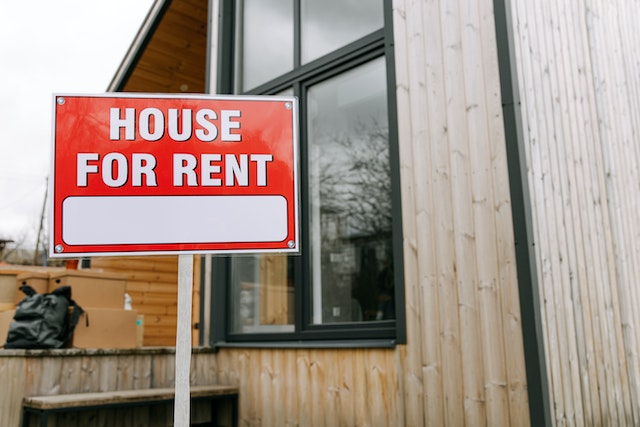California Fair Housing Act: An Overview

Landlords, real estate brokers, lenders, housing providers, and housing sellers have a duty to treat their clients fairly and equally to avoid discrimination in housing, therefore it’s important they know the Fair Housing Laws. The federal Fair Housing Act was enacted by Congress to prevent housing discrimination based on certain protected classes.
As a landlord, running a successful rental investment property requires strict adherence to California landlord-tenant laws (CA Civil Code 1940-1954.05). And among the many legal obligations is adherence to the California Fair Housing Act.
How Did The Act Come About?
The Rumford Fair Housing Act of 1963 was the first to address discrimination. Also called the California federal Fair Housing Act, or AB 1240, its goal was to end housing discrimination based on color.

One year later, the Civil Rights Act of 1964 was passed. The federal law banned racial discrimination in fair employment, voting, and the use of public facilities. Aside from race, it also ended discrimination based on color, religion, and nationality. It was the most comprehensive civil rights legislation ever enacted by Congress.
The real groundbreaking legislation was inarguably the Fair Housing Act of 1968. It prohibited discrimination in the sale, rental, and financing of housing based on 4 protected classes.
The 4 protected classes were race, color, religion, and nationality. Sex was added to the protected housing list in 1974. In 1988, more classes were added to the housing protection list– disability and familial status – bringing the total number of protected classes under law to 7.
What Are the Protected Classes Under Fair Housing Laws?
The local Fair Housing Laws of 1968 prohibits discrimination on the basis of the following factors.
- Race – It is wrong and unlawful for a California housing provider to qualify prospective renters based on their race.
- Color – A California housing provider has a duty to treat all prospective renters equally, regardless of their skin color.
- Familial Status – You cannot have housing policies or restrictions against tenants based on familial status. The familial status class covers California women who are pregnant, parents with underage children, and any person in the process of adopting or a person acquiring custody of a child or children.
- Disabilities – You cannot discriminate against a California tenant on the basis of their mental disability or physical disabilities. In addition, you have a legal responsibility to make any necessary housing accommodations and/or modifications that a person with a disability may request to ensure the person has equal access to housing.
- National Origin – This refers to a California tenant’s birthplace, ancestry, language, and/or customs. It would therefore be illegal for you to discriminate against a person based on their national origin, accent, appearance, name, immigration status, or participation in their customs. Every person deserves fair treatment, regardless of their background.
- Religion – You cannot discriminate against your California tenant because a tenant wears religious clothing or engages in religious practices and rituals.
- Sex – You cannot deny a tenant services or an opportunity to rent your home or offer less affordable housing because of their sex.

In addition to the 7 protected classes of the Federal Fair Housing Laws, California State extends state Fair Housing Laws to provide additional protection to tenants based on ancestry, gender identity/expression, mental disability, citizenship status, marital status, immigration status, primary language, income source, sexual orientation, and military and veteran status.
Other behaviors that qualify as illegal housing discrimination under both federal and state Fair Housing Laws include the following.
- Refusing to rent your home or provider services to a qualified tenant based on their sex or sexual orientation.
- Falsely denying that your rental property is available.
- Terminating a rental lease based on discriminatory reasons of their national origin.
- Having policies in your lease that result in discriminatory practices.
- Refusing to make a reasonable housing accommodations and reasonable modifications for residents with a disability. For example, rejecting a disabled person because of their service animal.
- Subjecting a person with children to overly strict rules.
What State Agency Enforces Fair Housing?
For California Fair Housing Laws, the agency responsible for addressing discriminatory complaints and upholding the law is the California Fair Employment and FHA.
Are There Exemptions Under the Act?
While the FHA applies in most situations, some exemptions do exist.
The first exemption applies to dwellings that have four or fewer units and the owner occupies one of them. In addition, single-family homes that are rented or sold without the use of brokerage services are exempt from the FHA. The landlord, however, must not own more than three of such homes at one particular time for it to not be an alleged discriminatory act.

Elderly homes are also exempt from the act. There is a caveat, though – the home must be specifically designed for occupation by the elderly.
The other exemption is for religious organizations and private clubs. These have a right to offer their members preference.
How Can You Protect Yourself Against Fair Housing Violations
The following are some tips for landlords to keep in mind when renting out your California investment property.
- Have a consistent screening procedure for prospective renters.
- Have proper policies that are in line with the California Fair Housing laws.
- Make reasonable accommodations and modifications when requested by a disabled tenant.
- Advertise your property properly by not making statements that show preference or limitation based on prospective tenants’ protected classes.
Bottom Line
Treating all tenants equally and fairly is key to running a successful investment property in California. If you are not well-versed in your legal obligations as housing providers, IPM Property Management can help. We can help make ownership of your Chico rental property stress-free and profitable.
This blog should not be used as a substitute for legal advice from a licensed attorney in your state. The law changes, and this post might not be updated at the time of your reading. Please contact us for any questions you have in regards to this content or any other aspect of property management services you may need.
